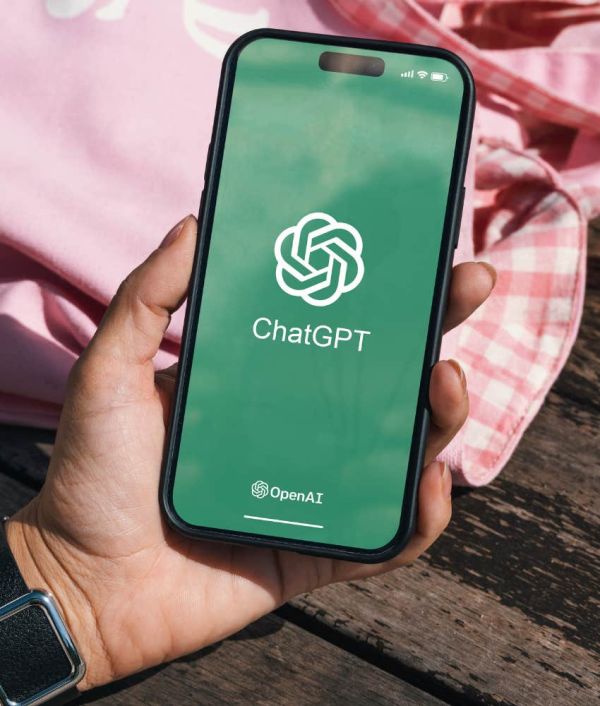
Unless you’ve been living under a rock for the past few years, you know what ChatGPT is. It sort of started out as a funny, underestimated tool, like, “Hey, check out this cool site that can write song lyrics on the spot.” Fast-forward a bit, and now one husband is threatening to quit therapy altogether in favor of getting treatment through ChatGPT.
ChatGPT integrated into our lives pretty quickly, and yet it’s still in its infancy. People use it for food recipes, to explain concepts, to summarize material, and the list goes on. But what happens when the tool becomes your best friend, your therapist, and your literal addiction?
As is the case with everything else tech- (looking at you here, social media), there are some who realize it’s a tool and use it as such, and others who take it a step too far. Case in point: a woman whose husband is now threatening to quit seeing his therapist in favor of feeding his ChatGPT addiction.
DimaBerlin / Shutterstock
Turning to Reddit for advice, the wife shared, “I started using ChatGPT a little over a month ago,” adding, “Now maybe I spend an average of five minutes a day on it, whether for personal or professional [reasons].” Because it was a handy little tool that had been useful to her, she decided to tell her husband about it. He works in landscaping, and she thought it might help his business. He tried it a few times and thought it was nice. Everything seemed normal. However, four days later, everything changed.
He accidentally inhaled spray paint and, on top of that, was dealing with family issues. The wife described him as having “high tensions, sleep issues, dysregulated emotions, and a sprinkling of depression.” Although she said these issues were nothing new, and would arise “every few years,” this particular bout of anxiety took a decidedly different turn thanks to ChatGPT.
: People Who Begin Using ChatGPT Like An Emotional Support Animal Usually Have These 3 Reasons
So, did the husband seek medical attention? Sadly, no. Instead, he began feeding his symptoms into ChatGPT, looking for answers and reassurance. “This has now progressed to near constant use,” she wrote. “First thing in the morning, last thing at night.”
And what’s worse? He now trusts the tool more than a real, licensed therapist.
“Last week, his therapist told him to stop using it,” the wife wrote. “He got really [upset] that she came at him sideways and doesn’t understand it’s helping him cope.” And going further downhill, the husband told the wife he plans to cancel his next therapy appointment because he doesn’t want to hear the therapist talk badly about ChatGPT, or Chad, as he calls it.
One commenter had an interesting take, “Make him do a course in AI. Generally behaviors like this stems from ignorance that lead to over-appreciation of what these systems are actually doing. When they understand the inner workings better that alone makes them develop a healthy level of detachment knowing it’s nothing but an autocomplete on steroids.”
: Burned-Out Employee Packs Up & Leaves Work Because ChatGPT Told Her To — ‘For Some Reason It Made Everything Click’
 Diego Thomazini | Shutterstock
Diego Thomazini | Shutterstock
A recent academic article by Dr. Ala Yankouskaya, a researcher at Bournemouth University, explored the growing concern over excessive ChatGPT use. Dr. Yankouskaya argued that the tool can foster addiction due to its personalized dialogue, emotional validation, instant gratification, and continuous engagement.
ChatGPT tells you what you want to hear. It creates a pseudo-social bond that can feel like a substitute for real human relationships. The husband is a perfect example. He now finds it easier to open up to a phone screen than to a licensed therapist or even his own wife.
Dr. Yankouskaya also warned that ChatGPT accelerates our decision-making and boosts productivity, but over time, it could weaken our critical thinking. It’s like when we think, “What should I eat for dinner?” and instead of weighing our options, we just let the tool decide. Dr. Yankouskaya concluded by emphasizing the urgent need for more research. After all, ChatGPT was only released to the public in 2022; it’s still a baby. We don’t yet fully understand the long-term impact it could have.
What’s the solution for the addicted husband? He needs professional help. As Dr. Yankouskaya’s words show, overusing ChatGPT can become a real addiction. He must attend his therapy sessions, and his dependency on the tool needs to be addressed with seriousness. While it might feel comforting to replace a real human connection with a fast, gratifying AI interaction, in the long run, it will only harm him.
: Boomers Want Recipes, Gen-Z Wants Therapy: How Each Generation Use ChatGPT For Totally Different Stuff
Matt Machado is a writer studying journalism at the University of Central Florida. He covers relationships, psychology, celebrities, pop culture, and human interest topics.